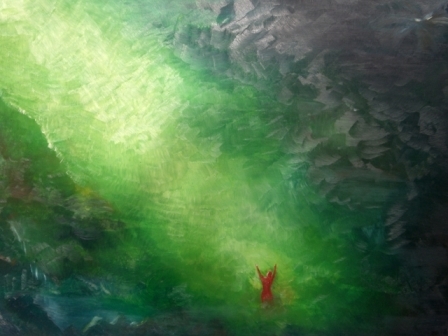 Trying to understand the world, philosophers created models and theories within which they could fit whatever was observed, and which would predict what else there should be according to the theory. These theories and models were supposed to explain phenomena, the extent of knowledge, and the beyond. There was no real science, but feeble attempts to fit phenomenology into a given philosophical model. Trying to understand the world, philosophers created models and theories within which they could fit whatever was observed, and which would predict what else there should be according to the theory. These theories and models were supposed to explain phenomena, the extent of knowledge, and the beyond. There was no real science, but feeble attempts to fit phenomenology into a given philosophical model.
Perhaps, Descartes (1596-1650) was the last philosopher to have influenced science by his cogito ergo sum that launched a new epoch of pragmatical science by engendering the dualism separating the mind from the body. This distinction allowed science to evolve based upon causal laws, whereas experience, the immeasurable, remained within the realm of the spirit. The division worked for mechanistic science, but the fact that science is unable to include all aspects of existence (such as consciousness) points in the direction of the existence of other than causal lawfulness. Ever since the emergence of modern science, philosophy became a kind of a footnote to science and phenomenology, trying to explain in philosophical terms what this or that scientific achievement means. Thereby, philosophy lost its lofty status of true knowledge, the ability to create the conceptual basis, the structure within which science, biology, psychology, and every other human endeavor could evolve.
Holophany could become the philosophy that could direct human endeavor not by telling people what there is, what they should see, but by pointing out where to look.
|
|
The quest for the truth, or more accurately, THE TRUTH, is probably as old as human awareness; but why would knowing the truth have any importance? What advantage does knowing the truth provide? Does such knowledge help in navigating the rough seas of right and wrong? Or do humans hope that such knowledge will light the path for mortals in the form of an unwavering beacon that leads to freedom? To immortality? Omnipotence? The fact that each proclaimed truth turned out to be a Will-o'-the-Wisp rather than a beacon seldom restrained seekers of truth from worshipping the next fashionable conception of truth, which seems to indicate that the belief that there must exist a TRUTH that will liberate us is so deeply ingrained in our way of thinking that not finding it won't deter us from stumbling onward in our search.
|
|
Read more...
|
|
|
Since the contemporary paradigm is built on axioms that are considered to be self-evident truths, enforcing truth has been deemed a necessity. Socio-religious axioms include designating the good and the evil, and the evil frequently includes those who don’t accept the truth forwarded by some preacher.
|
|
Read more...
|
|
|
